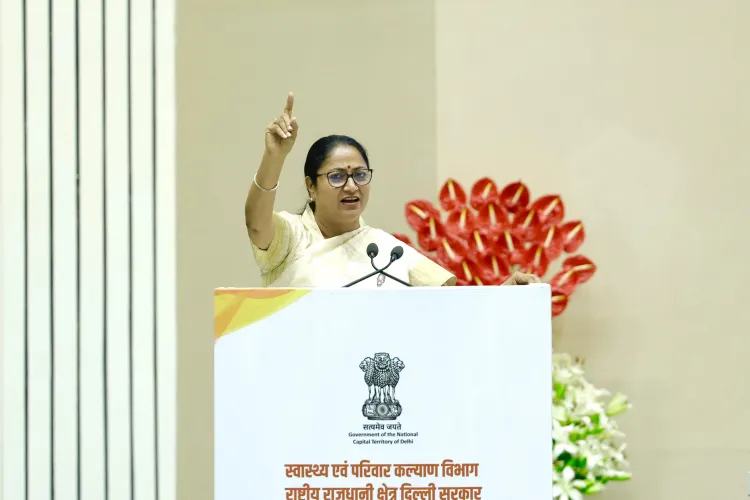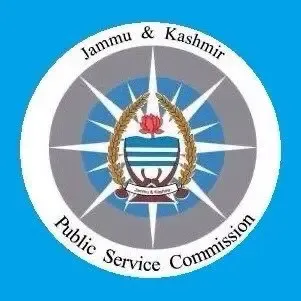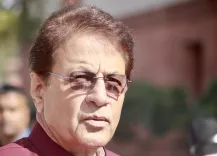Did CM Rekha Gupta Just Expose AAP's Healthcare Model?

Synopsis
Key Takeaways
- CM Rekha Gupta critiques AAP's healthcare model.
- Previous administrations left Delhi's healthcare system in disrepair.
- Mohalla Clinics are alleged to be ineffective.
- Corruption in healthcare contracts and staffing is highlighted.
- Gupta emphasizes the need for authentic change in healthcare.
New Delhi, July 6 (NationPress) Delhi's Chief Minister Rekha Gupta delivered a fierce critique of the Aam Aadmi Party (AAP) on Sunday, claiming they have turned the healthcare system in Delhi into a facade masked as reforms and populist initiatives.
She also condemned the former administrations for neglecting the health infrastructure.
Speaking at a public gathering in New Delhi, CM Gupta stated, "For 27 years, the citizens of Delhi were deceived by slogans, music, and promises of reform, while the true healthcare system deteriorated. Before our government assumed control, there were merely 0.42 hospital beds for every 1,000 individuals under the prior regimes. Among 38 government hospitals, only six were equipped with MRI machines, and just 12 had CT scanners."
In a subtle jab at AAP, she asserted that the so-called "world-class health model" touted by the previous government was merely an empty assertion.
"They introduced a trendy concept – Mohalla Clinic – and squandered crores in the name of public health. But what was the outcome? These clinics were situated next to sewage drains, adorned with enormous posters of party leaders, yet devoid of medications or qualified medical personnel," the Chief Minister claimed.
She further accused the previous administration of hiring unqualified personnel to staff these clinics. "At some locations, only one individual, lacking a valid degree, was employed and paid Rs 40 per patient. Their focus was not on treatment but merely on numbers. They claimed that 200 patients visited daily, yet basic arithmetic proves this impossible given the clinic hours," she added.
CM Gupta charged the former administration with rampant corruption in contract awards, hospital construction, and staff recruitment.
"Corruption was pervasive, from contracts to infrastructure, from procurement to payroll. This was the so-called healthcare revolution they promised," she stated.
Without directly naming AAP, Gupta remarked that the residents of Delhi had been misled for years with false models and superficial publicity.
"Our objective is not to generate noise but to foster genuine change. The public now understands that those before us were only interested in headlines, not in healing," she concluded.










